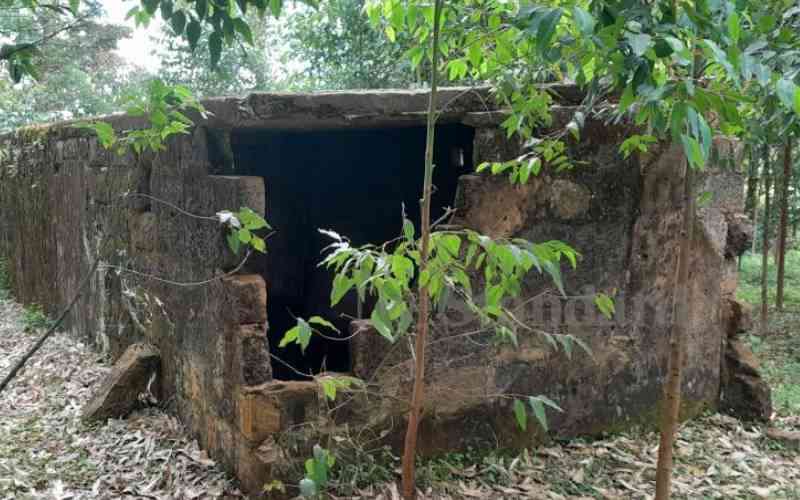×
The Standard e-Paper
Smart Minds Choose Us

Nestled within a eucalyptus tree plantation in Ndundu-ini village, Kirinyaga County lies remnants of a two-room house that once stood as a silent witness to the loud struggle for independence.
The structure, now in ruins, carries a legacy that echoes Kenyans' resilience and determination. Built during the dark era of colonialism, one room served as an armoury, clandestinely storing weapons and supplies used by colonialists and home guards during the struggle for independence.